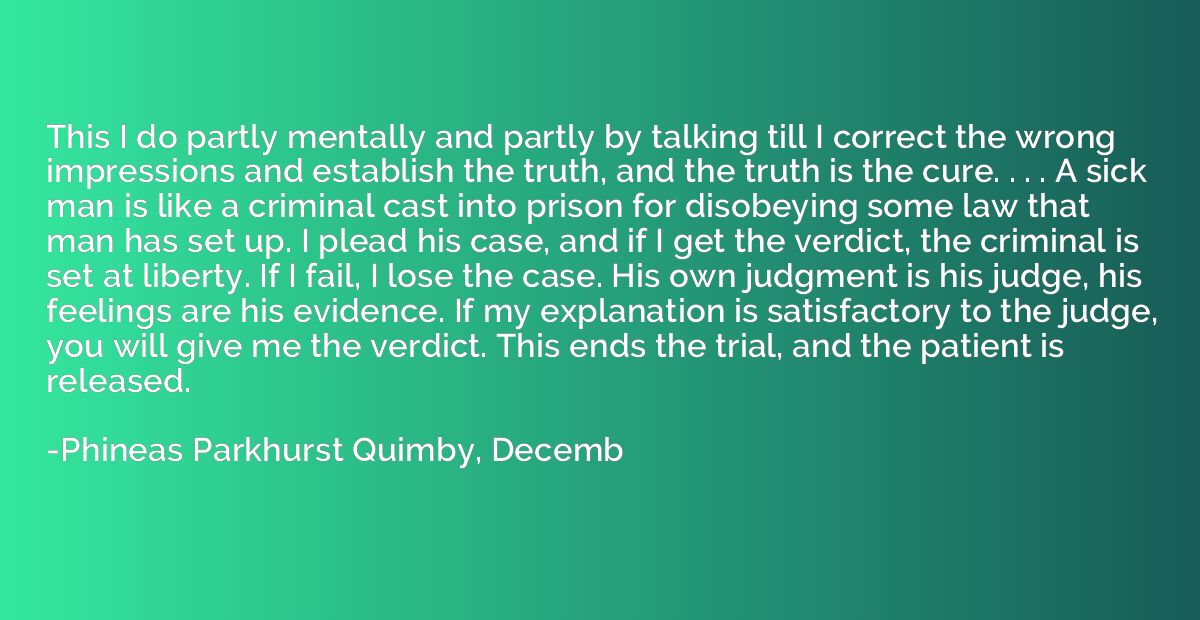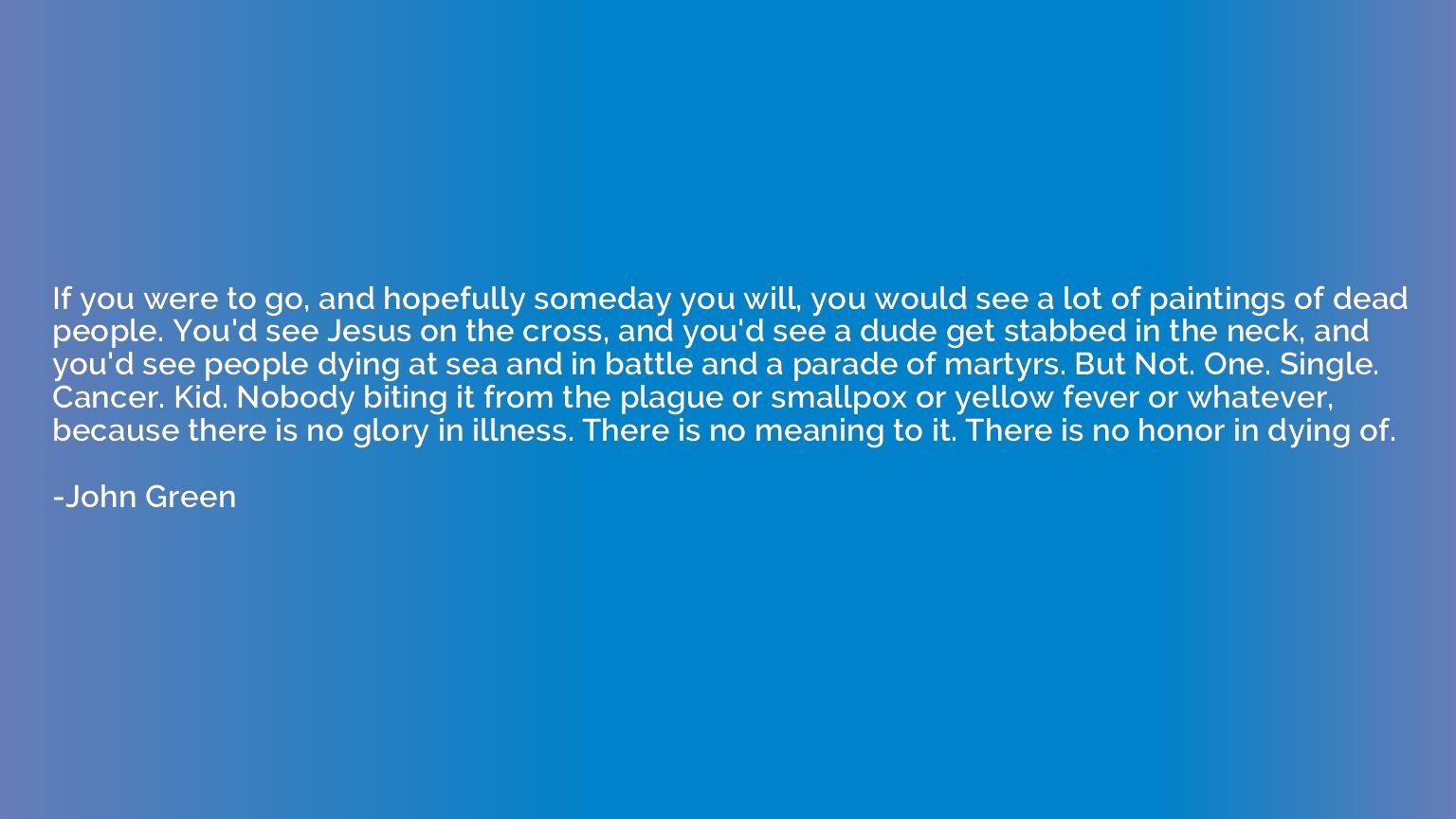Quote by Phineas Parkhurst Quimby, Decemb
This I do partly mentally and partly by talking till I correct the wrong impressions and establish the truth, and the truth is the cure. . . . A sick man is like a criminal cast into prison for disobeying some law that man has set up. I plead his case, and if I get the verdict, the criminal is set at liberty. If I fail, I lose the case. His own judgment is his judge, his feelings are his evidence. If my explanation is satisfactory to the judge, you will give me the verdict. This ends the trial, and the patient is released.

Summary
This quote highlights the importance of communication and understanding in resolving misunderstandings and finding truth. The speaker uses the metaphor of a sick man being like a criminal in need of redemption. By engaging in conversation and providing explanations that satisfy the "judge," or the sick person's own judgment and feelings, the speaker hopes to bring about a cure. The quote emphasizes how effective communication and the establishment of truth can lead to freeing the patient from the confines of illness, similar to how a successful defense can set a prisoner free.














